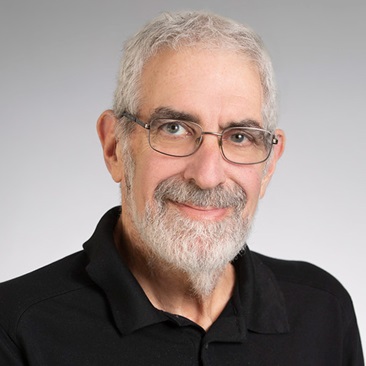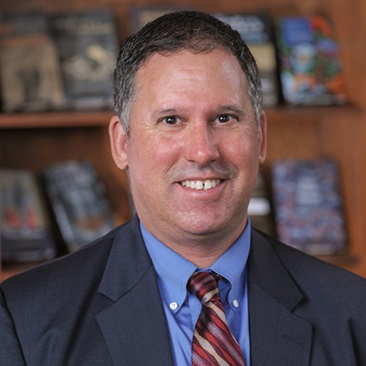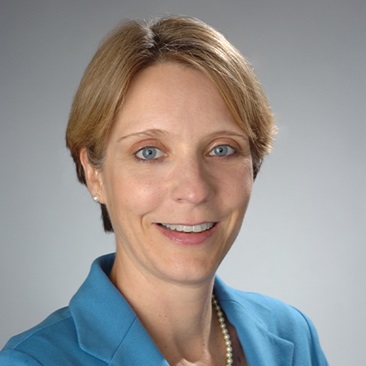Improving With Age
June 1, 2012
In 2011, the oldest of the baby boom generation - the 78 million Americans born between 1946 and 1960 - began turning 65. Those boomers are expected to live longer than any previous generation of Americans. In fact, the entire world population is growing older, the result of declining birth rates and increases in life expectancy. The number of people in the world over age 60 is expected to triple by 2050.
The health and finances of that aging population will have major social, cultural, and economic consequences on everything from the housing market and labor force to the viability of programs such as Social Security and Medicare.
The implications raised by this demographic shift have spurred creation of Syracuse University's new Aging Studies Institute (ASI), which raises the profile of SU scholarship related to aging. For 40 years, that scholarship had been conducted through the University Gerontology Center, one of the country's oldest university-based gerontology programs. The Gerontology Center, which was based in Maxwell's Center for Policy Research, has been absorbed by the ASI. Its director is sociologist and demographer Janet Wilmoth.
"Everyone associated with the ASI is motivated by a concern about the growing proportion of the population that is older," says Wilmoth. In addition, she says, many ASI affiliates study marginalized and disadvantaged populations. "There is interest in the safety net of public programs that facilitates well-being in those groups."
ASI will promote aging-related research, training, and outreach. Its thematic areas include age-based public policy and well-being; population aging; health and functioning; family dynamics, care work and intergenerational support; and aging design, engineering, and technology. The institute also is home to the Center for Aging and Policy Studies (CAPS), one of 14 centers funded through the National Institute on Aging's Demography and Economics of Aging Centers program. CAPS supports pilot projects related to the demography and economics of aging.
“It is a marker not only of faculty expertise in this area but also of institutional priority.”
Gary Engelhardt
Faculty Associate, Aging Studies Institute
For example, Douglas Wolf, who directs CAPS, is involved in a national study of disability, care needs among the elderly, and family decisions regarding care-giving. Economist Gary Engelhardt is interested in the impact of pensions, Social Security, and annuities on retirement saving and income security. And sociologist Christine Himes looks at ways obesity influences health in later life.
"All of these issues have policy implications," Wilmoth says. "ASI and CAPS are engaged in disseminating information about the policy implications of gerontological research." For example, ASI organizes the annual Syracuse Seminar on Aging, at which a prominent scholar presents on a policy-related topic, then produces a policy brief. CAPS hosts a biennial Gerontology Education Workshop, where faculty members from across the United States learn about policy issues and research that can be incorporated into the gerontology curricula at their home institutions.
Unlike the Gerontology Center - which connected SU faculty members who were otherwise spread across campus - the ASI will have a physical headquarters, in renovated space in Lyman Hall. Next January, 11 of ASI's affiliates will move there, including the six scholars from Maxwell who are profiled on the following pages. (There are, in total, more than 30 scholars at SU affiliated with the institute from programs in the colleges of arts and sciences, education, engineering, visual and performing arts, and others.)
"There's never been a place you could point to and say, 'There's the Aging Center,'" says Wolf. "Having everyone in close proximity is quite exciting."
"It will provide us with the opportunity to work closely together to build collaborative, interdisciplinary programs of funded research," says Andrew London, professor of sociology, "while also providing a context for excellent graduate education and, perhaps, postdoctoral training in aging-related issues."
Creation of the ASI is a symbol of SU support. "For the University, it is a marker not only of faculty expertise in this area but also of institutional priority," says Engelhardt. "It's a way of acknowledging strong faculty in aging studies and attempting to externally elevate the role of Syracuse University in this area."
"People in the world of gerontology already recognize Syracuse as a place where there are strong scholars," says Wilmoth, "but the establishment of the ASI will take us to the next level in terms of grant funding, external visibility, and attracting students."
Issues in Gerontology
These six Maxwell faculty members are among the affiliates of the Aging Studies Institute who will move to its new headquarters next year. Their research demonstrates the broad relevance of gerontological inquiry.
Grandmothers as Caregivers
Madonna Harrington Meyer
Professor of Sociology
As demands on parents balloon, the burden of care giving often trickles down to grandparents - typically, grandmothers.
"I think we have not really been aware of the extent to which many middle-aged women juggle work and family," says Madonna Harrington Meyer, who is currently writing a book on the subject, funded by a grant from the National Institute on Aging. Over several years, she has conducted 50 interviews around America and analyzed Health and Retirement Study data on women ages 51 to 70 about work and caring for grandchildren.
"I have seen that caring for grandchildren is joyful work," she says. But it is work nonetheless, and leaves many older women worn out and resource-depleted. Harrington Meyer found many of these women use vacation time, sick time, and savings to care for grandchildren. Many are also caring for disabled husbands and frail older parents in addition to caring for grandchildren.
"From a policy perspective, it is clear that our failure as a nation to guarantee paid maternity leave, paid vacation, and paid sick leave leads many young parents to rely quite heavily on grandparents for help with their kids," she says. "The image that grandma is at home and has little else to do but care for grandkids is misinformed."
A fellow of the Gerontological Society of America (GSA), Harrington Meyer serves on a U.S. Senate Subcommittee on Aging working group on women's retirement income. Among her many publications, her book with Pamela Herd, Market Friendly or Family Friendly? The State and Gender Inequality in Old Age, won GSA's Kalish Publication Award. She is editor of Care Work: Gender, Labor, and the Welfare State.
Obesity and Old Age
Christine Himes
Professor of Sociology; Director, Center for Policy Research
While Americans are living longer, are those later years vigorous and healthy?
Christine Himes examines the health trends among the elderly during an era when life spans are increasing. "We know that . . . more of those additional years of life are years of good health rather than poor health. But we're not really sure why that has happened or if it will continue," she says.
She is especially focused on obesity. At a time when obesity rates are rising in the population, Himes's research focuses on how obesity impacts health in later life (work funded by the U.S. Department of Health and Human Services). Obesity often leads to diabetes, of course, and diabetes dramatically accelerates the effects of aging. With obesity on the rise, should we anticipate an epidemic of later-life chronic diseases and other implications of diabetes?
Himes has studied the effect of obesity on specific health factors, such as a person's ability to recover from injuries or conditions that limit activity. A recent paper in the Journal of the American Geriatrics Society examined, for example, the relationship between obesity and falling or fall-related injury.
Himes serves on the Board of Scientific Counselors for the National Center for Health Statistics, which provides advice to the Secretary of Health and Human Services on issues around the collection and use of health data. She has served as a senior fellow of the Brookdale Foundation Leadership in Aging Program and is a Fellow of the Gerontological Society of America. Along with Harrington Meyer she is co-editor of the Baywood Publishing book series, "Society and Aging."
Military Service and Later Life
Andrew S. London
Professor and Chair of Sociology
Janet M. Wilmoth
Professor of Sociology; Director, Aging Studies Institute
How does military service affect later life? That's a question Andrew London and Janet Wilmoth, both sociologists and demographers, have been tackling for the last seven years. The duo has studied the myriad ways military service affects people's lives over time - everything from the health trajectories of older male veterans to the associations between veteran status, extramarital sex, and divorce.
"We are making population-level comparisons between veterans and non-veterans across a range of socioeconomic statuses, family, and health outcomes across the life course," Wilmoth says of their research, much of it focused on older adults.
The work began with a $582,000 grant from the National Institute on Aging to examine the health of veterans in later life. Using a large public data set for studying aging-related issues, Wilmoth and London compared veterans with non-veterans to see how military service affects later health. An edited volume based on that work, titled Military Service in Lives, with contributions from other Maxwell researchers, will be published later this year.
London and Wilmoth are now using numerous data sets to make additional population comparisons. They recently completed a project funded by the National Poverty Center that focused on veteran status, work-limiting disability, poverty, and material hardship. A paper on extramarital sex and divorce is forthcoming, and a new study on veterans' use of disability benefits is currently funded by the Social Security Administration.
"Our work on military service and its consequences is quite multifaceted at this point," says London. Both he and Wilmoth are senior fellows in SU's new Institute for Veterans and Military Families.
Wilmoth, a fellow of the Gerontological Society of America, has published also in the areas of older adult migration and living arrangements, health status, and financial security. She is engaged in a pilot project with Penn State's Martin Sliwinski through CAPS, developing methods of collecting information from older adults on a daily basis to assess their health and activities. "Most assessments are done less frequently," she says. "The idea is to develop better measures of how older adults are doing on a day-by-day basis." She is also co-editing the fourth edition of Gerontology: Perspectives and Issues, due out next year.
London's work with veterans, meanwhile, complements his broad research interests in the health, care, and well-being of stigmatized and vulnerable populations, including persons living with HIV/AIDS, welfare-reliant and working-poor women and their children, and the formerly incarcerated. Currently, he is working with graduate students on projects that address lesbian, gay, bisexual health disparities and transgender experiences of health care and family life.
Saving for Old Age
Gary Engelhardt
Melvin A. Eggers Faculty Scholar and Professor of Economics
The aging of America raises questions about the federal government's ability to meet the needs of an aging society depending on Social Security, Medicare, and other entitlements. That makes Gary Engelhardt's work particularly relevant.
An expert in the economics of aging, he currently has three main focuses. The first follows his long-standing interest in the impact of pensions, Social Security, and annuities on the retirement savings and income security of older Americans; this research is sponsored by the Social Security Administration, TIAA-CREF, and the National Institute on Aging. He's also studying the impact of the Medicare Part D prescription drug benefit on insurance coverage, medical expenditures, and health outcomes, work funded by the Social Security Administration.
And this spring he began a three-year project funded by the MacArthur Foundation that will assess the impact of access to affordable housing on the health and living arrangements of the elderly. "I am evaluating the impact of housing and saving policies targeted to low-income households and the impact of population aging on housing markets," he says.
His work has been featured in the Wall Street Journal, New York Times, Washington Post, Boston Globe, Chicago Tribune, and Los Angeles Times; and on CNBC, MSNBC, National Public Radio's Morning Edition, and American Public Media's Marketplace. He has also given congressional testimony on the housing crisis and the tax incentives for housing.
Assisted Living
Douglas Wolf
Gerald B. Cramer Professor of Aging Studies and Professor of Public Administration and International Affairs; Director, Center for Aging and Policy Studies
The diminishing ability of older adults to live independently has not only health consequences but also economic consequences - for families and for government.
Douglas Wolf, a demographer and policy analyst who studies aging and long-term care, is currently on the steering committee of a major national survey - the National Health and Aging Trends Study - that will produce data for tracking the levels and trends in disability of older people, along with related family, health, and economic topics. Much of his research, funded by the National Institute on Aging (NIA), examines patterns of disability and how they change at the end of life.
"We're talking about people who need some sort of assistance, usually from other people, in living independently or taking care of themselves," says Wolf, who directs the ASI-based Center for Aging and Policy Studies. "There's a whole spectrum of severity and need, and I'm interested in all aspects of that process from statistical analysis of disability data on individuals to the collection of data."
Funded by the Russell Sage Foundation, Wolf also studies caregivers (particularly those who are giving care to their parents) and the factors involved in their decisions about care giving. "The dominant theme in more than 30 years of research has been the challenges, frustrations, burdens, and adverse consequences faced by caregivers," he says. "I'm sort of questioning that - not saying there aren't any adverse consequences, but there are a lot of holes in the evidence."
Wolf, a fellow of the Gerontological Society of America, has conducted several international projects, such as an NIA-funded study of elder care and living arrangements in America, Germany, and the United Kingdom. A founding member of the International Network of Research on Elder Care, he has presented at several United Nations-sponsored lectures.
By Renée Gearhart Levy
This article appeared in the spring 2012 print edition of Maxwell Perspective; © 2012 Maxwell School of Syracuse University.
Related News
Commentary

Jan 28, 2025
Research

Jan 24, 2025
Research

Jan 13, 2025
Research

Dec 19, 2024




